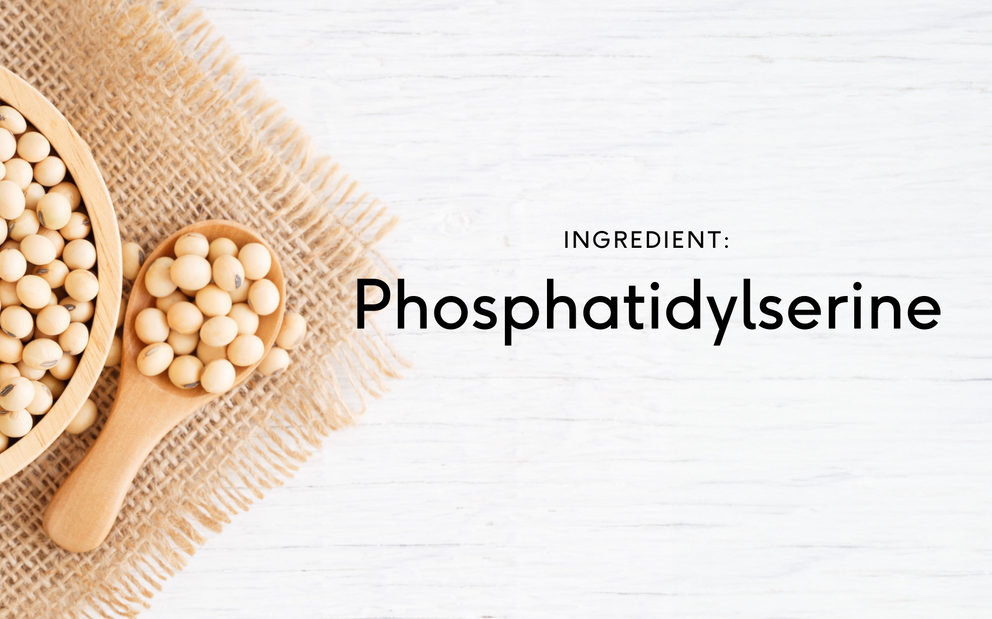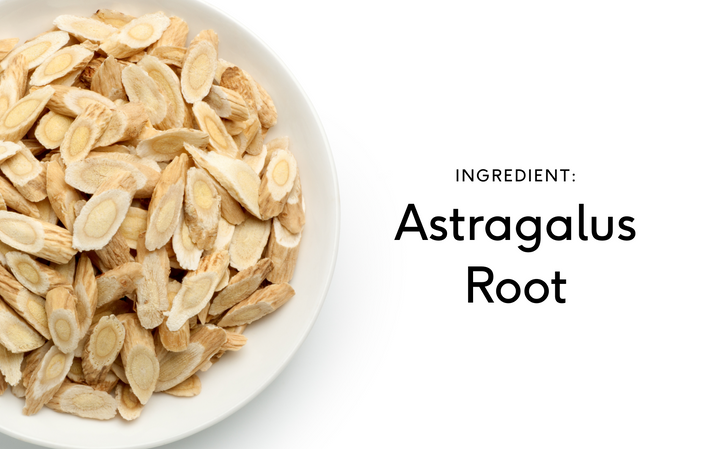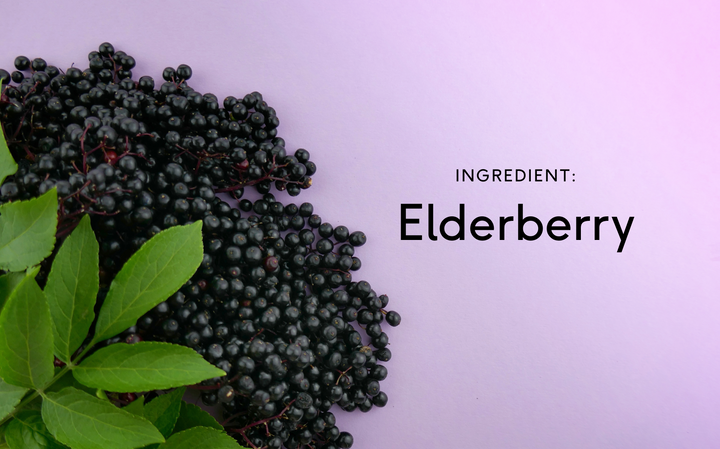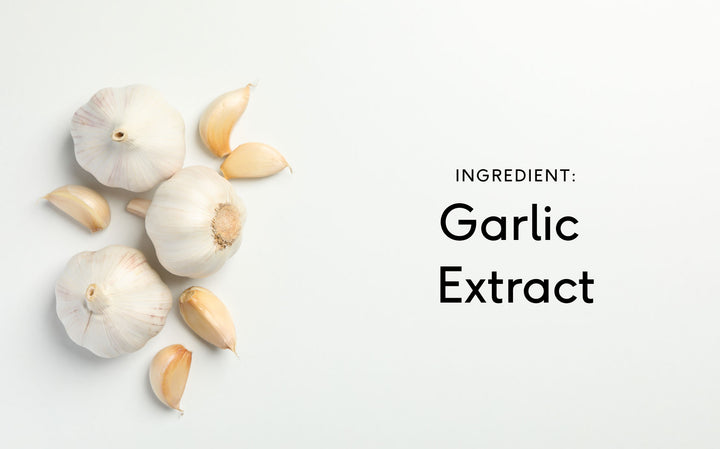Learn About Phosphatidylserine in 5 Minutes
Table of contents

What is phosphatidylserine?
Phosphatidylserine is a phospholipid, which is a special type of cell membrane component. This phospholipid is naturally produced in the human body, but research indicates that taking phosphatidylserine as a supplement could provide a variety of beneficial effects. Feel uses a plant-based extract containing 60% phosphatidylserine.
Is phosphatidylserine water-soluble or fat-soluble?
Phosphatidylserine is amphiphilic, which means that some of its components are water-soluble while others are fat-soluble. As a result, the various components of phosphatidylserine absorb into your body at different rates.
Where can phosphatidylserine be found naturally? Common sources of phosphatidylserine:
Phosphatidylserine is present in all types of animal tissue in small quantities and this essential substance is also present in certain plants. While it was common practice to derive phosphatidylserine from bovine cortex in the past, concerns over the spread of disease and mistreatment of animals have led producers to derive this phospholipid from soybeans or sunflower oil instead.
What is the recommended daily value for phosphatidylserine?
Phosphatidylserine is not recognised as an essential nutrient, so there is no official nutrient reference value (NRV) for this substance. However, most clinical studies have used doses of 100-300mg of phosphatidylserine per day.
Can you absorb enough phosphatidylserine from food?
Some sources indicate that the average intake of phosphatidylserine per day is around 130mg, which is close to the amount of this phospholipid used in clinical studies. The most abundant source of phosphatidylserine in food, however, is animal tissue, so vegetarians and vegans will have a hard time getting enough phosphatidylserine in the foods they eat.
Why is Phosphatidylserine necessary for your body?
Phosphatidylserine is a critical component of cell membranes since it is essential for cell signalling. This phospholipid is also used to coagulate blood at the sites of injuries, and research indicates that these functions can be accomplished either by endogenous (body-generated) or exogenous (supplemental) phosphatidylserine. In addition to performing these critical bodily functions, phosphatidylserine appears to provide extra benefits when taken as a supplement.
Functions of phosphatidylserine
- Potential exercise benefits: Studies show that phosphatidylserine may increase exercise performance and help with recovery after exercise.
- Potential cognitive benefits: Research indicates that phosphatidylserine supplements might help improve memory and reduce age-related cognitive impairment.
- Potential mood benefits: Studies show that phosphatidylserine may reduce the symptoms of depression in older adults and boost overall mood.
- Potential attention benefits: In children, supplementing with phosphatidylserine may reduce impulsivity and help with other symptoms of ADHD.
- Potential immune benefits: Research indicates that phosphatidylserine may help promote healthy immune responses by modulating the action of T cells.
When should you take phosphatidylserine?
Research indicates that people from all demographics can benefit from taking phosphatidylserine as a daily supplement. Vegans and other people who abstain from eating animal products, however, are most at risk of not getting enough phosphatidylserine from the food they eat. If you’ve decided to not eat animals, you should take phosphatidylserine supplements to ensure that your body has enough of this essential phospholipid to operate effectively.
How long do you need to take phosphatidylserine to start experiencing its benefits?
Some of the components of phosphatidylserine will absorb into your system almost immediately, but you’ll need to take phosphatidylserine continuously over the course of a few weeks to note the beneficial effects of this substance.
How long does it take for your body to digest/absorb phosphatidylserine?
As an amphiphilic substance, it can take your body a few days to fully absorb phosphatidylserine and deploy this phospholipid where it’s needed.
How long does phosphatidylserine stay in your body after you take it?
Once it has absorbed into your cellular membranes, phosphatidylserine will stay in place until the cell it has bonded with dies.
Is phosphatidylserine an antioxidant?
According to some research, phosphatidylserine may exert direct antioxidant activity by protecting your brain cells from free radicals.
Can you overdose on phosphatidylserine? What are the effects?
There are no known cases of phosphatidylserine overdose. If you take too much of this substance, mild symptoms such as nausea or vomiting may occur.
Does phosphatidylserine dissolve, flush out, or build up in the body?
Phosphatidylserine bonds with your cellular membranes, which means that it stays in your body until the cells with which it has bonded die.
Can you take phosphatidylserine during a diet?
Phosphatidylserine is no longer made from animal tissues, so it is safe to use this substance even if you are vegan or have other dietary restrictions.
Are there synthetic forms of phosphatidylserine?
Efforts have been made since the 1960s to develop synthetic phosphatidylserine as a blood-clotting agent. Synthetic forms of phosphatidylserine are not, however, used in supplements.
Absorption rate of synthetic phosphatidylserine
No data are available indicating whether the absorption rate of synthetic phosphatidylserine is different from the absorption rate of natural forms of this phospholipid.
Why might natural forms of phosphatidylserine be better?
Natural phosphatidylserine is the only form of this substance currently available in supplements.
How to take phosphatidylserine
Phosphatidylserine is generally consumed in oral supplement form, but this phospholipid is also available in animal tissue.
Phosphatidylserine trends in medicine
In 2020, an international team of researchers reported that phosphatidylserine networks in the brain were critically involved in the progression of PHARC (polyneuropathy, hearing loss, cerebellar ataxia, retinitis pigmentosa, and cataract), a rare genetic disorder that can occur at any stage in life, indicating that phosphatidylserine supplementation could help with this condition. Also in 2020, researchers found that phosphatidylserine may help alleviate the T-cell suppression that is a hallmark of many types of immune disorders, which indicates that taking phosphatidylserine may improve your overall immunity.
Sources
1. Effects of Phosphatidylserine Supplementation on Exercising Humans
2. Soybean-Derived Phosphatidylserine Improves Memory Function of the Elderly Japanese Subjects with Memory Complaints
3. The Effects of Phosphatidylserine and Omega-3 Fatty Acid-Containing Supplement on Late Life Depression
4. The effect of phosphatidylserine containing Omega3 fatty-acids on attention-deficit hyperactivity disorder symptoms in children: A double-blind placebo-controlled trial, followed by an open-label extension
5. ABHD12 and LPCAT3 Interplay Regulates a Lyso-phosphatidylserine-C20:4 Phosphatidylserine Lipid Network Implicated in Neurological Disease
6. Abstract B45: Phosphatidylserine suppresses T cells through GPR174, and co-inhibition of adenosine receptors and GPR174 synergistically enhances T cell responses
7. A Unique Antioxidant Activity of Phosphatidylserine on Iron-Induced Lipid Peroxidation of Phospholipid Bilayers













































 Back
Back





